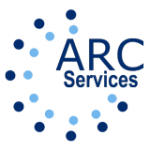What Can You Do to Help an Addicted Person?
From the substance abuser’s perspective, the subject below can be a very real issue. You, as a relative or parent, may consider that you have done more than your share of help. Yet, despite all your efforts, the person only turns around and continues to abuse drugs or alcohol. And your life is the worst for it.
At a closer inspection, this scenario is more common than one may believe. But how do you start successfully helping an addicted person? Read on to get more insight.
In Some Cases, this Might Sound Familiar?
How many times has your loved one talked about their financial difficulties? Their rent is late, bills are not paid, or they can’t afford food for the children, etc. There are as many scenarios like this as there are people who are abusing mind-altering substances.
The person presents a problem or some urgency, and you are the only one who can solve this. More often than not, you help by paying their phone bill or sending a few dollars so they can eat a hot meal. You are attempting to hold off homelessness, starvation, cut communication, etc. But is it really helping? What is a loving parent to do?
Suggested reading:

Enabler Defined
Backing Off
From Help

Ability to Deal with Life & State of Mind
In fact, it is not proper help despite the good intent mentioned above. For anyone abusing some mind-altering substance, it’s only a matter of time before the ability to deal with life dwindles. They lose the ability to be responsible, caring, understanding, and other qualities you usually recognize in them. These qualities are what permit them to function in this current society.
It takes proper recognition of the actions needed to eat each day. One needs to purchase food, so one needs to have income. To have money, one needs to work, etc. This statement is a given for anyone in a proper state of mind.
But the drug-addicted individual does not think this way. They are constantly bothered by the need for another high, buzz, rush, numbness, thrill, etc. Therefore, they depend on a clear-minded relative to aid in the important actions to make it to tomorrow.
The abuser’s cry for help is not truly about the lack of money.

Dos & Don'ts
When
Helping
Intervention
Process

This is the First Step in Helping an Addicted Person
Hear Them Out, Listen, Understand
You will often hear the addicted person state: “No one ever listens” or “No one cares.” Usually, it is due to some agency, a friend, or a relative telling the person what is wrong with them. “What is wrong with you!” “Don’t you see your life going to pieces?”
You can be sure the misuser is quite aware that something is wrong, just as you are. There is no need to tell the person your “opinion” of what is wrong. It can only set things back. This person needs others to take a moment and “listen” (when they are sober.) Helping someone is listening to what the person has to say.
You may be surprised at what you will discover. Find out more on the dos and don’ts of approaching a loved one. The person may open up and tell you how tired they are of using drugs or alcohol. Or they may blame you and the world for their state of affairs.
Your task is to receive and understand this and let them know you got what they are saying. It does not mean you need to AGREE. But let them know you heard what they said, that it was received and understood. You will be amazed how this can bring a more profound and sincere dialogue.
Game Plan: Getting Them to See the Light
The whole reason is to get the individual comfortable talking to someone who will not judge, evaluate, or degrade their communication. You can now build on the dialogue from this newfound trust and bring the person to accept help.
So, the next time your daughter, son, or spouse says, “nobody ever listens,” you know what to do. Reply with “I’m here and ready to listen” and do so. They might refuse at first but just repeat your statement. Eventually, they will see your sincerity. You will get more done this way. With your conversations, get them to recognize for themselves that they need help.
Remember that you are not there to give them money or pay their bills, nor are you there to bail them out of their own problems. Your task as a parent or a friend is to listen and get them to see the light. At one point, they will request your help for professional addiction counselling. Then, by all means, do what you can to make it happen.

Five Steps
Through Denial
Drowning in
Someone's
Addiction

What is the Time Span for Results?
Drugs or alcohol causes the person to become introverted (looking inward). The substance they use sticks them in a mixing bowl of thoughts, emotions, and feelings. By having the person open up little by little, you are assisting in sorting through these confusions.
The results in helping an addicted person can happen rapidly or over a length of time. But whatever occurs, do not give up. Following these simple steps will save you from anxieties, frustrations, and worries and may well save your loved one’s life.
Call a professional referral counsellor if you have difficulties helping someone struggling with addiction. They can guide you. They’re available to take your call.

Intervention
Series
Find out more about us.

Marc J. Bernard
Author,
Substance Use Disorder & Recovery Professional,
Referral & Consultation Counsellor





